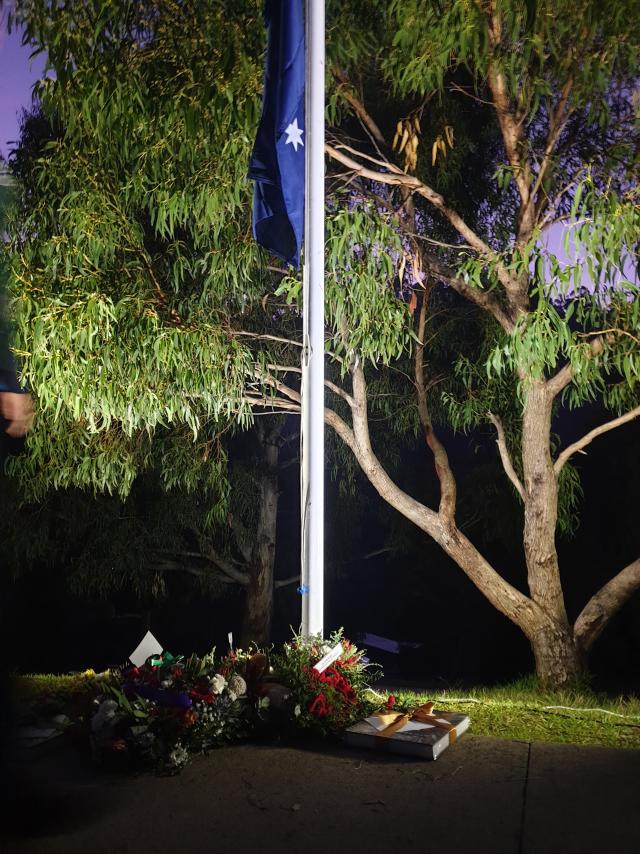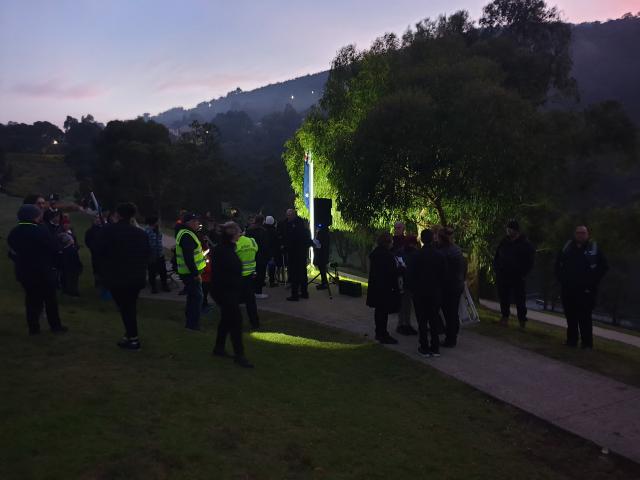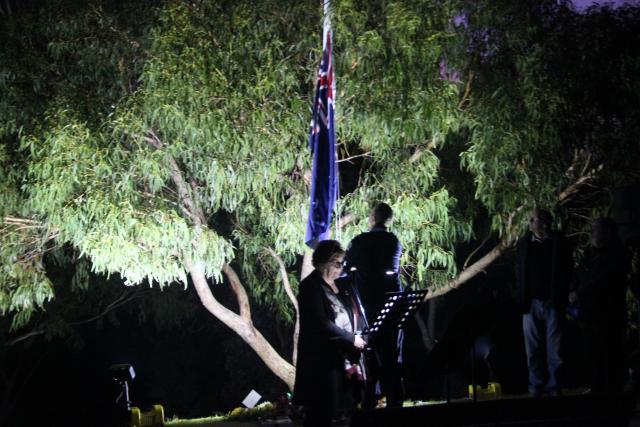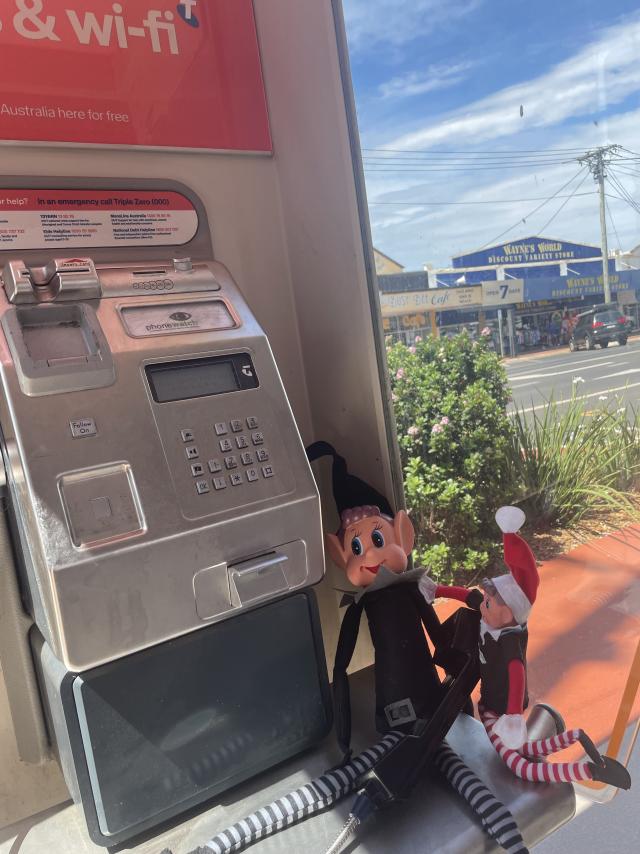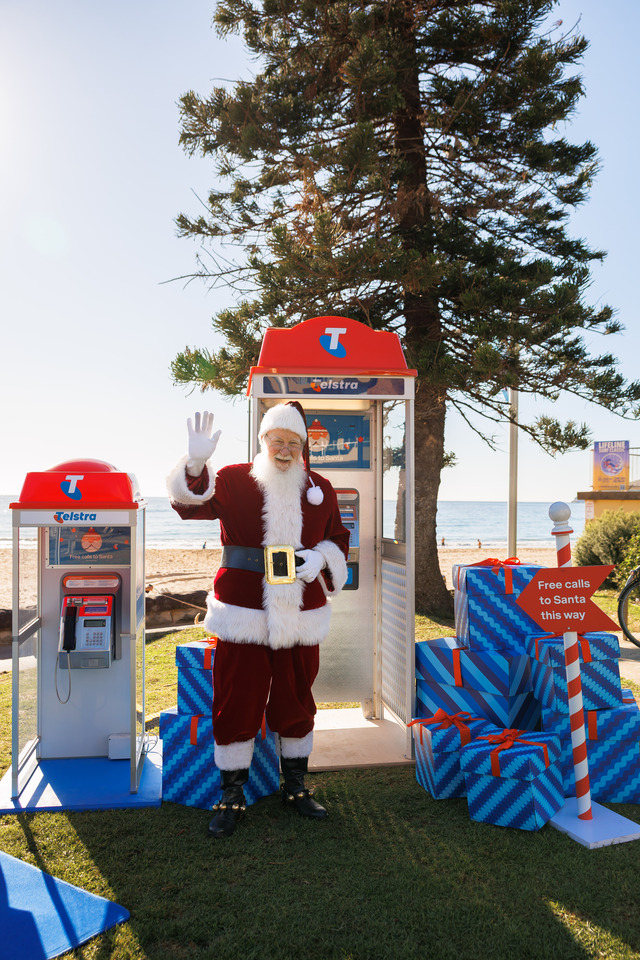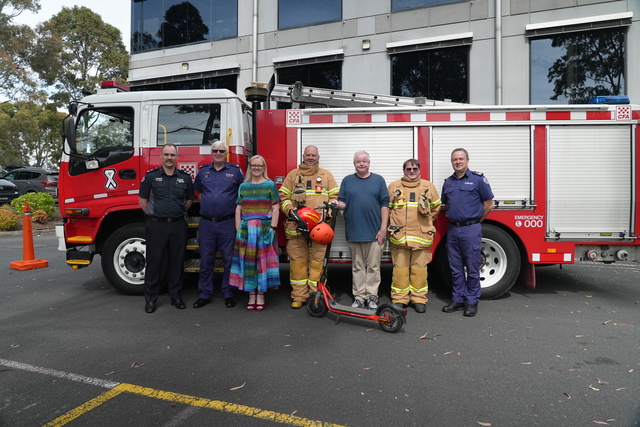In April, Ferntree Gully residents solemnly honoured the sacrifice of the ANZAC forces who fought and died at the Battle of Gallipoli in the first ceremony at the Ferntree Gully Quarry since before the Covid-19 pandemic. this story was originally published on 25 April.
Under the break of dawn and thick fog covering the hills, the Ferntree Gully community solemnly stopped to pay their respects this Anzac Day.
The dawn service, organised by the Rotary Club of Ferntree Gully and Ferntree Gully CFA, was held at the Quarry Reserve for the first time since before the Covid-19 pandemic in the early hours of April 25.
Master of ceremonies Karin Orpen OAM said it was special to see hundreds of the Ferntree Gully community commemorating and giving thanks to those who served for Australia, gave the ultimate sacrifice and for those who still serve us today.
“107 years ago today, the Anzac forces landed at Gallipoli. We have joined together here in this beautiful setting to reflect and give thanks for the sacrifices of those who died in that campaign and the campaigns that followed in the First World War,” she said.
“The relevance of our setting this morning, and its links to that fateful day in 1915 at Gallipoli are also remembered. The 23rd Battalion, many of whom were from this area, were led by a 30-year-old commander by the name of George Hodges Knox, who our city is named after.”
Chris Marwick gave a reading about the history of the men from Ferntree Gully who served at Gallipoli and the sacrifices they made during the historic landing.
“They headed for the shore in 36 lifeboats towed by 12 steamboats, there were 30 to 40 soldiers in each lifeboat. These men were the first 12,000 Australians to land. One soldier in the first wave was 20-year-old Sergeant William Head from Upper Ferntree Gully,”
“What did the young Sergeant Head from Upper Ferntree Gully think as he scrambled up the hostile cliff? Did he think of these hills of home, or magpies and Kookaburras singing at dawn, and not the raucous roar of battle? He died later that day.”
Ms Orpen said following the battle of Lone Pine Ridge, a soldier by the name of Lance Corporal Benjamin Smith collected and sent a cone from the lone pine tree back to his mother in Australia, who successfully raised two seedlings from them.
“One of those precious seedlings was sent to the Australian War Memorial and from that seedling, many 1000s have been propagated,” she said.
“One is planted here at the Ferntree Gully Quarry Reserve as a constant remembrance and tribute to those who made the ultimate sacrifice for us, including those who died in the battles on the Western Front in France and Flanders.”
Des Higginbotham and Mr Marwick gave a roll call for the soldiers from Ferntree Gully and Upper Ferntree Gully who have lost their lives serving Australia.
“1914 Australia had a population of less than 5 million, but over 400,000 served in the forces. 62,000 died,” Mr Higginbotham said.
“Probably the same number after the war had their lives short and because of the horrors they went through.”
As the last post was played on the bugle, the sound carried and echoed throughout the quarry and was met with the singing of kookaburras.
Ferntree Gully CFA Captain Seamus Smith, Christina Anderson from Rotary Club Club of Ferntree Gully, Graham Crichton on behalf of Ferntree Gully MP Nick Wakeling, Knox councillor Megan Baker and Knox Historical Societies’ Lin Brewster laid wreaths beneath the Australian flag.
Students from St Joseph’s College led those attending the service in the Australian National anthem before the ceremony concluded.

